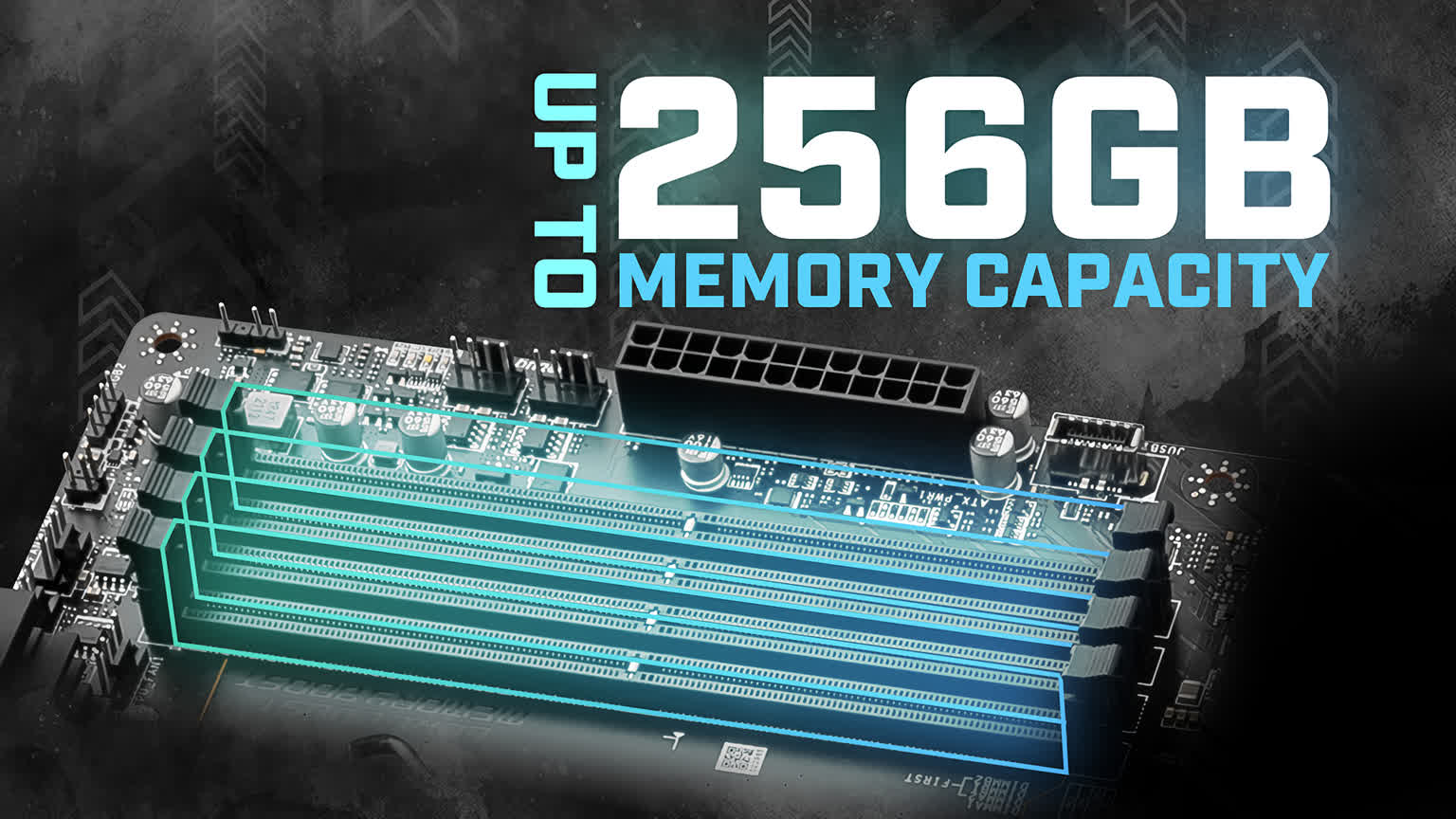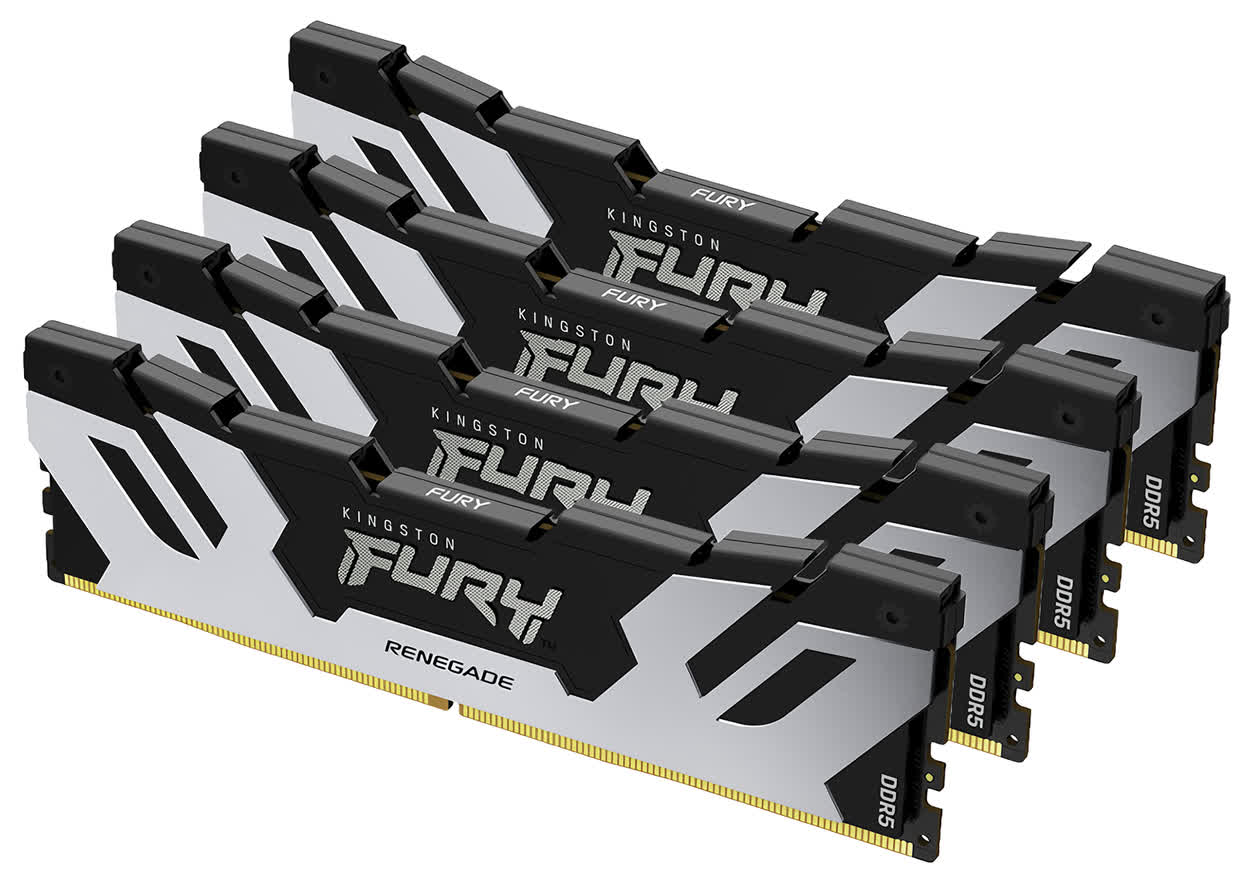Bottom line: Two leading motherboard makers have announced support for memory capacities up to 256 GB. It's only a matter of time before competing board makers also expand their memory capacity support. Fortunately, there is no hurry for it to happen as most folks building a new system these days for general purpose use or gaming are likely to go with 32 GB of total memory capacity.

Asrock said its Intel 700 Series and AMD AM5 Series boards now support the higher capacity, made possible by populating each of the four DIMM slots (or 128 GB on boards with only two RAM slots) with Kingston Fury Renegade 64 GB modules. The company shared screenshots from an AMD system (X670E Taichi board) as well as an Intel machine (Z790 Nova WiFi) running at max memory capacity.
MSI also announced support for 256 GB of RAM on four-slot motherboards (or 128 GB on two-slot boards). MSI shared proof of the same Kingston kit running on AMD and Intel platforms but their screenshot is too small to make out many details.

Both board manufacturers utilized Kingston Fury Renegade 64 GB modules, which are built on Micron's 1-beta technology. The modules are rated for 36-38-38 latency at 1.350v.
Supporting Kingston's 64 GB modules is one thing, but finding them online is a whole different challenge. I was only able to track down 32 GB modules – perhaps Kingston hasn't released its 64 GB modules to the general public yet, and Asrock / MSI are using pre-production parts for testing?
Most would agree that 32 GB is a comfortable amount of memory for a new build, but I personally tend to splurge in this area. I am in the process of putting together a new PC for the first time in 12 years and opted for a 48 GB DDR5 kit (24 GB x 2). The extra capacity should help to future-proof the system a bit, especially considering the board only has two memory slots.
https://www.techspot.com/news/101226-asrock-msi-boards-now-support-256-gb-ddr5.html